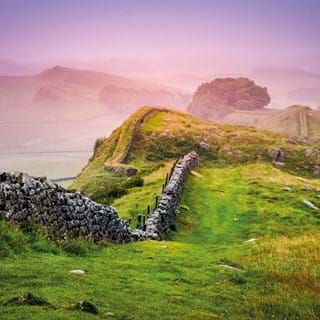
Dr Jamie Sewell

Dr Jamie Sewell has fifteen years’ experience supervising excavations in Britain, Germany, Romania and Italy, including Pompeii. He has authored books and articles on the archaeology of towns in Hellenistic Italy and in the broader Mediterranean region.
His ongoing research is focussed on how and why larger settlements in Italy transformed as a result of the Roman conquest of the peninsula. Jamie has lectured at Durham University in the UK, Humboldt University in Berlin, and has more than a decade’s worth of experience working as a guide.
What first sparked your interest for archaeology?
I think my interest might have always been there, imbedded in my genes. My father was an enthusiastic and talented history teacher, and I remember listening to him as a child, enthralled, as he explained archaeological sites when we were on holiday. Delving into the misty memory of my childhood, I can’t recall the time before I had an interest in history and archaeology.
If you can – which is your favourite archaeological site?
I always have difficulty with “favourite things” questions, so let me answer in the following way. Recently discovered sites that overthrow established models about the past, such as Göbekli Tepe or Must Farm, excite me the most. I find Delphi particularly special because, at least for me, the magic of the place can still be felt when you visit, from a phenomenological point of view. The most wondrousarchaeological site I have visited was Giza. Although the pyramids are mightily impressive, it was actually Khufu’s barge in its own purpose-built museum next to the Great Pyramid which blew me away. It is not every day you find yourself standing next to a near-complete 43m long luxury yacht that is 4,500 years old! Pompeii was the most enjoyable site I have excavated. Apart from the lack of organic remains, upon excavation, everything else looks like it was put there yesterday. Moreover, the archaeology is particularly easy to read due to the soil conditions; a rarity in Italy. My favourite archaeological project was a medieval site in Berlin however, Petriplatz, but that was due to the quality of the team and the results we achieved, rather than the site.
What does archaeology mean to you?
I believe it is important for an archaeologist to always know exactly why she/he undertakes every action in the archaeological process. Whether in the classroom or out in the field, you should always be in a position to answer the question: why am I doing whatever it is I am doing right now? With this philosophy, then naturally I have thought long and hard about why we “do” archaeology in the first place. Of course archaeology is, by definition, the study of our own species through the material culture of the past. But why do we do it and for whom are the results of this study? It contributes to the growing understanding of the human condition, complimenting knowledge gathered from other disciplines and sciences dedicated to this theme. Yet there is something instinctively interesting about archaeology. Whether we like it or not, there is little that is more fascinating to human beings than other human beings; we are just built that way. Our instinctive fascination with our own species is behind the birth of the discipline of archaeology, and today keeps it funded and provided for, legislatively, to varying degrees. As it is about “our species”, then I firmly believe the results of the study are for everybody – something academics are perhaps not always as aware of as they might be. The dissemination of new results to as wider audience as possible should therefore be the goal of every archaeologist. This is why my role as guide lecturer is a passion for me. It provides the valuable opportunity not only to pass on knowledge directly to an interested public, but also to discuss it.
 GB
GB
 US
US



